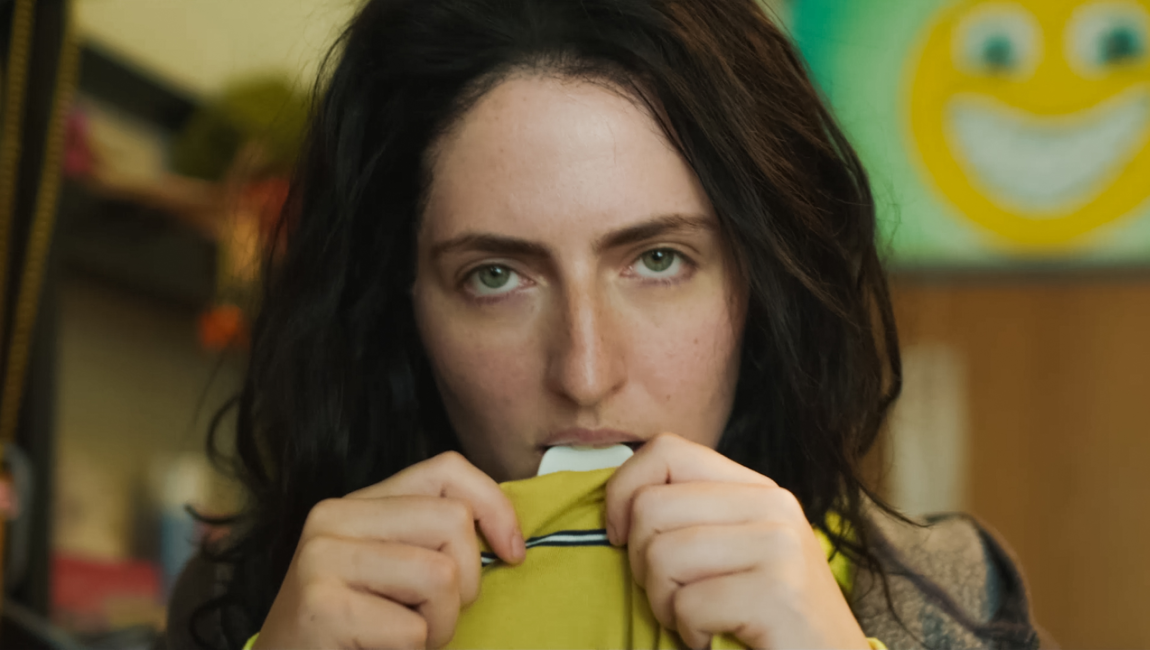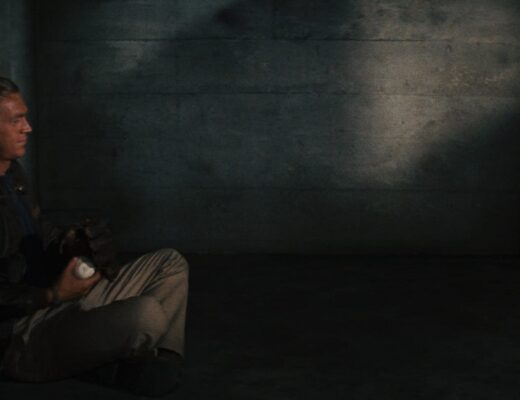The track record of measured, believable — let alone sympathetic — portrayals of mental illness on the big screen is spotty at best, oftentimes veering into outright offensiveness. Writer-director Alex Heller’s The Year Between attempts to course correct with its portrait of a young woman struggling to come to terms with her bipolar disorder, and given the potential (and history) of a histrionic treatment, it surprisingly succeeds more often than it fails. Heller herself stars as Clemence, who, as the film opens, is in the middle of a particularly rough manic episode that sees her taking out her aggressions on an understandably frightened college roommate. In swoops Clemence’s mother, Sherri (J. Smith-Cameron), who drags her daughter literally kicking and screaming back to their homestead in the suburbs of Chicago.
The Year Between takes its title from the period of time that Clemence takes off from higher education in a half-hearted attempt to get her life back in order. An official diagnosis starts Clemence on the path to recovery, one that will require her to take responsibility for her actions — not to mention a shit-ton of medication that has varying degrees of unagreeable side effects. Clemence’s family is, for the most part, unsympathetic to her ordeal, having been obviously worn down by her erratic behavior for years. Mom is the definition of tough love, while Dad (Steve Buscemi) is affable and always there with a kind word, but decidedly distracted. Meanwhile, her two younger siblings, Carlin (Emily Robinson) and Neil (Wyatt Oleff), see their sister as a spoiled, uncaring brat who uses her mental illness as an excuse to be as cruel and selfish as possible.
The truth: they aren’t wrong. The Year Between has no interest in painting Clemence in a particularly flattering light, her disaffected nature and constant putdowns established from the very first frame. It’s quite obvious that Heller, a bipolar filmmaker herself, wants to craft a warts-and-all portrait of mental illness, one that refuses to sugarcoat its devastating effects. And while such an approach is respectable, it also makes Clemence quite unpleasant company, as Heller errs on the side of real more than some audience members might be willing to tolerate. There’s never any doubt that such an approach is intentional, and the fact that it leaves Clemence nearly impossible to empathize with makes for a rather fascinating dichotomy, but one that Heller unfortunately doesn’t consistently explore in dramatically satisfying ways. And then there’s the film’s lazy climax, a high school party that conveniently gathers nearly every person of importance in Clemence’s life, an ending that plays a bit like wish fulfillment and is completely at odds with the emotional authenticity Heller strives for in all other aspects. A sudden plot development involving Clemence’s mother also ends up on the wrong side of melodrama.
Heller gets strong work from her entire cast, although that baseline is easy to hit when you have the likes of Smith-Cameron and Buscemi, who have arguably never delivered a bad performance in their entire careers. Heller the actress has the biggest tightrope to walk, and fairs well enough, even as her disaffected delivery occasionally threatens to cross over into Juno-esque smugness. It’s when it comes to the actual filmmaking, however, that Heller fails miserably, as there isn’t even a hint of artistry to be found in any of the always flat-looking, sometimes even ugly compositions. To her credit, she doesn’t fall into the trap of highly stylized overstimulation like so many films of this ilk, but to overcompensate with this much blandness is an equally unwelcome development. Heller’s attempts to handle mental illness broadly, and portray bipolar disorder specifically, with rawness and unglossed realism is instructive for other filmmakers working with such material, but her admirable aims in The Year Between are unfortunately undermined by deficiencies of cinematic form.
Published as part of Tribeca Film Festival 2022 — Dispatch 2.







